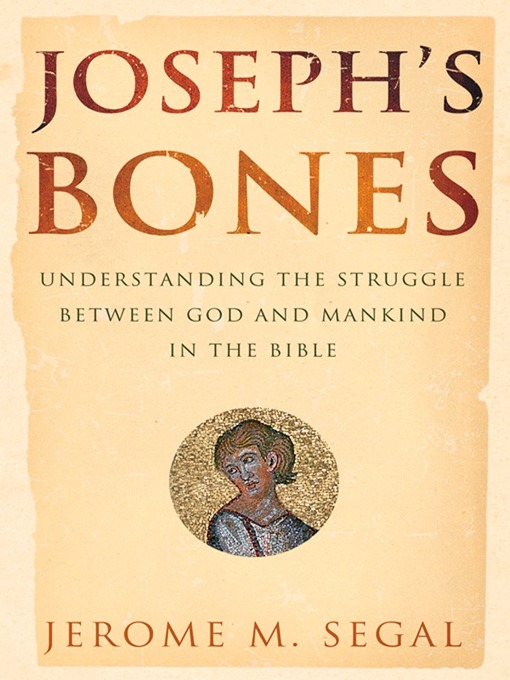Joseph's Bones
Understanding the Struggle Between God and Mankind in the Bible
In this groundbreaking book, Jerome Segal offers a fresh and vigorous reexamination of the oldest part of the Bible.
What if we knew nothing about Judaism or Christianity and one day picked up the first six books of the Bible? How could we possibly understand them? Who is God? Who are the Israelites? What is the relationship between God and humanity? Segal maintains that to approach the Bible from this perspective—one framed by the story of the Israelites’ fidelity to Joseph—is to find something unexpected: an account of the human condition that reads like an existential novel about the struggle of mankind against the unpredictable and often unwarranted wrath of God.
A radically new way of understanding the Bible and a brilliant exploration of it, Joseph’s Bones is a rarity in Biblical interpretation: brilliant, rigorously argued, and thoroughly original.
“Joseph’s Bones makes [an] audacious argument. . . . Reading the Bible as a novel about the struggle between God and humankind, Segal produces a work of interpretation that is itself novelistic in its humanistic vision and emotional force.”—Naomi Seidman, author of Faithful Renderings
“Perceptive and intelligent.”—Booklist
“Arrestingly original.”—Tikkun
“Compelling . . . transforming.”—Forward
-
Creators
-
Publisher
-
Release date
March 15, 2007 -
Formats
-
Kindle Book
-
OverDrive Read
- ISBN: 9781101217580
-
EPUB ebook
- ISBN: 9781101217580
- File size: 771 KB
-
-
Languages
- English
-
Reviews
-
Library Journal
March 1, 2007
Scholar Segal (Inst. for Philosophy & Public Policy, Univ. of Maryland; "Creating the Palestinian State") takes on a theological role in the style of Martin Buber and Abraham Joshua Heschel, suggesting that the story of Joseph's bones (Gen. 50:256; Exod. 13:19; Joshua 24:32) "opens the reader to a possible change in perspective" of how humanity sees itself. This shift in perspective, he writes, is about stepping "away from thinking of the Bible as God's words, and toward a perception of the Bible as humanity's message to itself." He weaves together strands of various philosophical thinking (e.g., recounting Stoicism, taking Kierkegaard to task, and engaging Sartre's "other") while remaining programmatic; his focus is on the function of narrative and reading the biblical text more like a novel. Segal includes an afterword that attempts to tie his suggested biblical reading method to the New Testament narratives. Though his book often feels homiletic, it is an interesting read. Recommended for synagogue and public libraries.Anthony J. Elia, JKM Theological Lib., ChicagoCopyright 2007 Library Journal, LLC Used with permission.
-
Booklist
March 1, 2007
The narratives concerning Joseph, the eldest son of Jacob and Rachel, are related in Genesis, verses 37 to 50. They form the transition between the stories of the patriarchs and the Israelite enslavement in Egypt. Segal points out that Joseph's bones are mentioned three times in the Hebrew Bible and once in the New Testament. He posits that the first six books, Genesis through the Book of Joshua (sometimes called the Hexateuch), reveal a single, powerful, and coherent story that does, in some ways, resemble Greek mythology. "It is not Pious. It does not revere God, but depicts a constant struggle between God and humanity, and in many ways, its sympathies lie with mankind." Philosopher Segal has written a perceptive and intelligent book.(Reprinted with permission of Booklist, copyright 2007, American Library Association.)
-
Formats
- Kindle Book
- OverDrive Read
- EPUB ebook
Languages
- English
Loading
Why is availability limited?
×Availability can change throughout the month based on the library's budget. You can still place a hold on the title, and your hold will be automatically filled as soon as the title is available again.
The Kindle Book format for this title is not supported on:
×Read-along ebook
×The OverDrive Read format of this ebook has professional narration that plays while you read in your browser. Learn more here.


